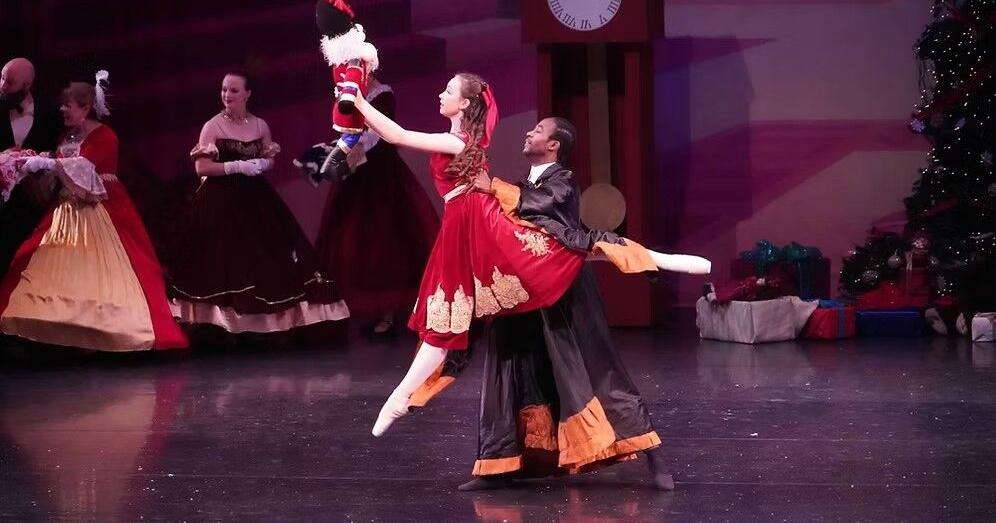“I can’t in good conscience attach my name to this,” he said.
Another concern stemmed from the arrangement with Pavlovich’s former studio, renamed Palmetto Conservatory of Dance when it was sold to Brianna Taylor, a principal dancer with the ballet company. Taylor’s mother, Dina Taylor, was recently named executive director of CCB.
This year, the company was told they’d have one less hour to train per day, about 20 hours less of rehearsal time per month.
“There need to be adequate hours (in the studio) to train and prepare the dancers,” Mack said, adding that rehearsal time is crucial to training dancers and building strength to reduce the chance of injury.
”That’s an untenable situation that might adversely affect the dancers,” Mack said.
Columbia Classical Ballet performs “The Nutcracker”
Mack also observed that paying a school owned by a dancer within the company for studio time is “a unique situation, and not ideal for the company.”
In his years of experience visiting other ballet companies worldwide, Mack observed it’s more common for a for-profit school to dedicate some percentage of its profit “so that the lessons subsidize the budget of the company,” he said.
In the Midlands, more often a dance company develops as an outgrowth of a school or studio, with the same person — such as Pavlovich, who founded both the business and the nonprofit company — making all artistic and managerial decisions.
“I would have encouraged the company to buy it,” Mack added of the studio. The board went in another direction.
Attempts to reach both Brianna and Dina Taylor for comment were unsuccessful.
Mack meanwhile is charting a new direction for his career, returning to the life of a soloist and guest artist.
“I’ve been recalibrating,” he told Free Times in November. This has included a week-long residency in Washington, D.C., and regular work-outs at another local studio owned by a colleague. He’s even trained in his living room.

